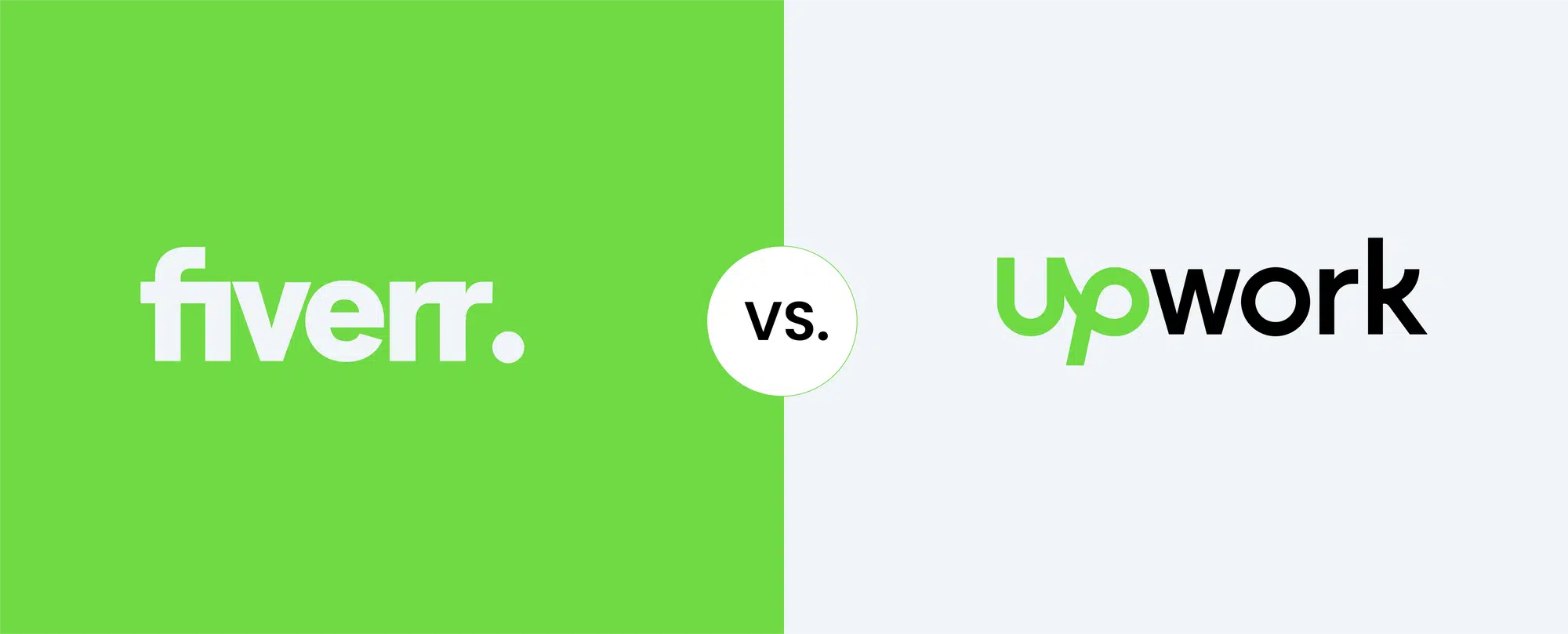If you’re a freelancer wandering into the universe of finding clients on the web, you may immediately become overpowered by the wealth of stages accessible. Two of the greatest and most well-known names are Upwork and Fiverr – yet which one is ideal for you? Understanding the key distinctions will assist you with picking where your abilities and aptitude can best sparkle.
Understanding the Fundamental Differences
Here is a useful relationship: consider Upwork a customary work board, while Fiverr is more similar to an internet-based commercial centre of pre-bundled administrations. How about we separate that:
- Upwork: Consultants make profiles, set their rates, and effectively search for work postings that match their mastery. They present propositions and rival different consultants for projects. Clients have more control in choosing their optimal consultant.
- Fiverr: Consultants list their administrations as pre-characterized bundles called “Gigs.” Clients peruse Gigs like they would items in an online store. The emphasis is on fast, clear-cut assignments at normalized costs.
Presently, we should dig further into explicit variables consultants consider while picking a stage:
1. Types of Work Available
Both Upwork and Fiverr proposition a large number of independent classes, yet there are unobtrusive contrasts.
- Upwork: Succeeds in long haul or complex tasks, offering classifications like programming improvement, bookkeeping, counselling, and writing/interpretation with a more noteworthy accentuation on proficient administrations.
- Fiverr: Inclines innovative and computerized administrations like visual depiction, voice-overs, site advancement, and video altering. It’s perfect for obviously characterized one-off projects.
2. Finding Work: Proactive vs. Reactive
- Upwork: You’ll have to effectively search out projects and offer propositions, possibly contending with numerous consultants. This proactive methodology might call for additional time speculation forthright.
- Fiverr: You make Gigs and trust that clients will come to you. While less starting hustle is involved, achievement relies upon your Gigs being appealing, advanced for search, and seriously valued.
3. Fees and Payment Structures
The two stages charge expenses, yet they work unexpectedly:
- Upwork: Fees are mostly client-side but affect your earnings indirectly. There’s a sliding fee structure depending on how much you’ve earned with a specific client:
- 20% for the first $500 billed with the client
- 10% for total billings with the client between $500.01 and $10,000
- 5% for total billings with the client exceeding $10,000
- Fiverr: Freelancers get paid 80% of the Gig price, with Fiverr taking a 20% cut. This means upfront budgeting and figuring out how to price your services including the fee is essential.
4. Setting Rates: Flexibility vs. Standardization
- Upwork: Freelancers have full command over hourly or per-project rates. Rates can be changed given the venture scope and your experience level. This is perfect for laid-out consultants with specific abilities.
- Fiverr: Customarily, Fiverr had areas of strength for an on the $5 Gig. While there’s greater adaptability currently, it’s actually outfitted towards normalized estimating. This can be restricting for experienced consultants however functions admirably for those beginning.
5. Client Communication and Support
- Upwork: Offers strong specialized instruments and undertaking the board highlights. It has a question-goal framework to assist with conflicts among freelancers and clients.
- Fiverr: Specialized devices are more essential yet adequate for most exchanges. Client assistance is accessible to the two purchasers and dealers, supporting settling debates.
So…the Big Question: Which is Better?
Tragically, there’s no single response. The “best” stage relies greatly upon your independent objectives and conditions. How about we go through certain situations to assist you with choosing:
When to Pick Upwork:
- You flourish in a serious climate: You’re willing to hustle, major areas of strength for create, and contend to win projects.
- Specialization is your solidarity: Your skill is niche, complex, or warrants a greater cost point.
- Long haul clients are the objective: You are inclined toward building progressing associations with clients.
- Rate adaptability is fundamental: You maintain that full command over your rates should reflect tasks and experience.
When to Pick Fiverr:
- Quick exchanges appeal to you: Your abilities are appropriate for normalized, distinct activities.
- You’re new to outsourcing: The lower boundary to passage and Gig model can be a decent beginning stage.
- You favour a ‘set it and fail to remember it’ approach: You’d prefer to improve Gigs and trust that clients will track down you.
- Clear task scopes fall into place: You know how to value your work seriously in the predefined bundle and you’re open to offering normalized administrations at a decent cost.
Additional Factors to Consider:
- Portfolio building: The two stages permit exhibiting your portfolio, yet Upwork offers a more point-by-point and adaptable profile creation choice.
- Upwork has a mobile application: This can be favourable if you deal with your independent work in a hurry.
- Niche marketplaces: Look past Upwork and Fiverr towards niche platforms taking care of your particular field. These can offer a more engaged pool of clients and decrease contests.
At last, the best methodology may be to attempt both Upwork and Fiverr. Explore different avenues regarding every stage, make profiles and see which one creates the kind of work and customers you’re chasing. Keep in mind, that achievement isn’t ensured on one or the other stage – it requires exertion, devotion, and consistent figuring out how to construct areas of strength for a profession.

